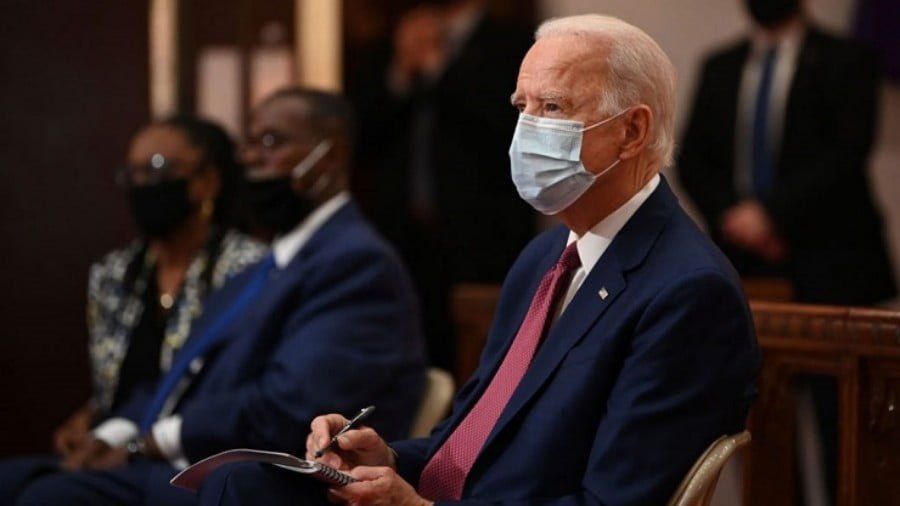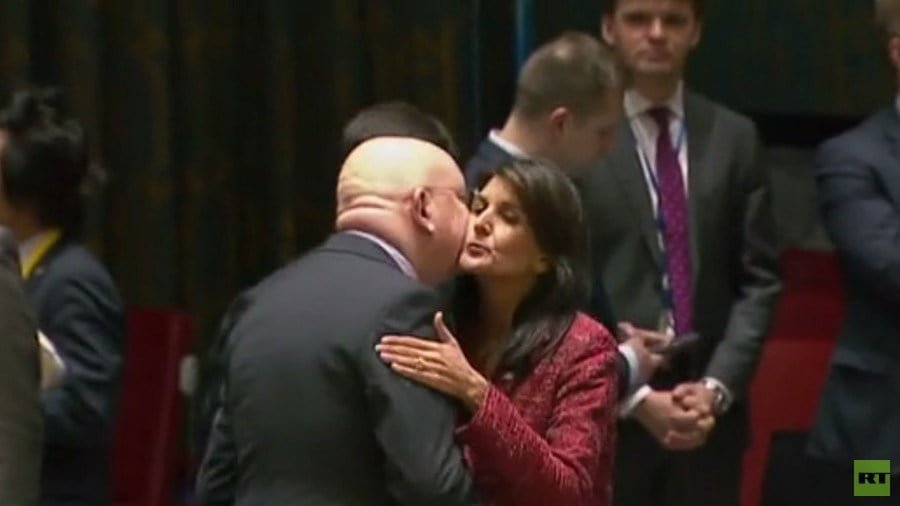The United States Needs to Adjust to 21st Century Realities
If further evidence were ever needed that the United States lives in a bubble, sheltered from the realities of an ever-changing world, it is found in the latest document released by the NATO oriented United States think tank, the Atlantic Council.
Released at the end of January 2021, the 86-page document is entitled The Longer Telegram: Towards a New American China Strategy. The focus of the document is United States policy in relation to China. and the title of the document is a clue as to its orientation. It is a direct reference to the 1946 Long Telegram written by the then United States ambassador in Washington, George Kennan. The document became the foundation stone for the following 60 years, known, somewhat misleadingly, as the Cold War.
The author (s) of the document have chosen to remain anonymous, a somewhat unusual practice for the Atlantic Council. The document is also somewhat unusual in that the focus is on China, rather than Russia. The two countries are inextricably linked however, in that the primary focus of the publication is to suggest ways of improving relations between the United States and Russia. This is far from an altruistic motive however, as the author clearly sees the growing relationship between Russia and China as the greatest threat to United States hegemony.
One is tempted to say at this point: too little, too late. It has been obvious for a number of years that Russia is tired of the constant lying, bullying and misrepresentations by the West as to its foreign and domestic policies. No opportunity is ever missed to belittle Russia’s actions, and to place a sinister interpretation on each and every action that Russia undertakes. In this endeavour Americans have been readily followed by a number of European countries, including notably those countries who were formally part of the Soviet sphere of influence in the 1945-90 period, such as Poland and the three mini -states, Latvia, Lithuania and Estonia.
That there is no rational basis for this antipathy is hardly the point. Western Europe does however, need energy and the only practical solution to their demand is Russian energy supplied through the pipeline to Germany which is now nearing its completion. The Americans are desperate to block this development, and not incidentally, supply Europe with their own, much more expensive alternative.
It is this authors opinion that the increasingly desperate lies told about minor Russian politician Alexei Navalny are best understood as part of this campaign to block the completion of the Nord Stream 2 project. If that campaign were to succeed, which is seriously doubted, it would be a blow to the Russians, but not a fatal one.
It is increasingly obvious that Russian patience with the duplicity of Western Europe has been exhausted. It may be seen in the statement of Foreign Minister Lavrov who no longer bothers to conceal his disgust with the unreliability and duplicity of Russia’s “European partners.” Russia has a much more important partner in China. It is the increasing closeness of Russia and China that is the source of so much American angst, and the main thrust behind the Atlantic Council’s latest piece.
China is, it has been now for some years, the world’s largest economy, measured in parity purchasing power terms, a much more realistic and insightful guide to real economic power than the commonly used gross domestic product. It is a useful clue as to the political orientation of the writer as to which economic measures they use. The Americans, and their apologists, prefer gross domestic product as it gives the illusion that the United States is still the world’s number one in terms of economic importance.
It is the marriage of Chinese economic power and Russian military power that poses the greatest threat to the United States’ domination of the world, or more accurately, the presumed domination. In real terms those days are long past, although the American refusal to accept this reality is what poses the greatest threat to the world.
The four years of the Trump administration were remarkable for the rhetoric about overcoming the Chinese threat to their previously dominant position. A response that was marked by much chest beating and the imposition of an increasing range of restrictions upon Chinese companies and individuals. What was remarkable however, that all the bias and all the rhetoric had absolutely no effect on the trade balance the United States suffers with China which continues to grow steadily. It is impossible to see any meaningful measures the United States can take to remedy that situation.
One would like to think that the Biden administration cannot be so dumb as to not recognise these realities, although on past performance it is unwise to under appreciate the American tendency to pursue a hopeless path.
This rather pessimistic view is enhanced by a reading of The Longer Telegram. The authors are clearly living in the 20th century when they perceive the solution to the American problem as to prevent the ever-closer ties of Russia and China.
Those ties do not exist in a vacuum. They have arisen and continue to grow precisely because of United States policies, either individually or in combination with their European allies. United States policy also seriously underestimates the effect of multiple other developments in the greater Eurasian region. These developments are transforming the whole economic and geopolitical structure of the region.
The reality is that China is writing a new playbook on trade and political development, and in this they are increasingly assisted by Russia. The Americans don’t like it and one can rest assured that they will do their utmost to at the very least hamper and sabotage these developments. Those efforts will be fruitless. The danger to the world is the gap between the reality and the United States’ continued perception of itself as the indispensable nation. The Atlantic Council falls into precisely that trap.







